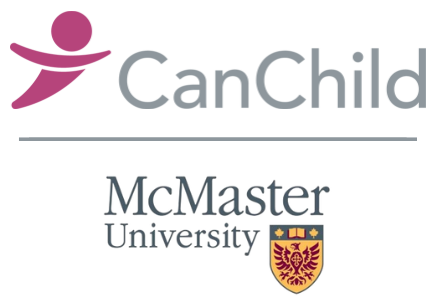Metformin is an promising drug that may be effective in the treatment of people with CP following brain injury.
Read Resources
43 resources found
CP & the Brain (Video)
Darcy Fehlings explains how CP can effect the brain depending on the type and location of the brain injury.
Read Resources
Meet Jessica (Video)
In this video, Jessica (a community advisor on cerebral palsy research and person with lived experience) and Jan Willem (a clinician researcher studying cerebral palsy) tell us about cerebral palsy, some of the misconceptions that surround it and what we can do to tackle them. Produced by the Ontario Brain Institute for Brain Awareness Week 2017.
Read Resources
DCD in Secondary School: Let’s MATCH for Success!
One student in every high school class will struggle with coordination difficulties. We can help kids with DCD by teaching them a strategy approach that allows them to MATCH their activities and abilities to promote success.
Read Resources
These six F-words won’t fill up your swear jar: What do the F-words mean to youth with impairments? (Video)
Young people discuss what the “F-words” in disability mean to them, while celebrating all they CAN do!
Read Resources
Concussion/Mild Traumatic Brain Injury Guideline Brochures
Child specific Return to Activity guidelines, which are more conservative than adult guidelines, were developed to guide management when youth sustain a concussion.
Read Resources
The Child and Adolescent Scale of Participation (CASP)
The Child and Adolescent Scale of Participation (CASP) measures the extent to which children participate in home, school, and community activities as reported by family caregivers.
Read Resources
Developing Service Provision Models for Children with Developmental Coordination Disorder
Early identification, assessment and intervention need to happen during the preschool years to help children with DCD develop pre-academic skills, facilitate transition into school and prevent the development of secondary problems.
Read Resources
Casts, Splints, and Orthoses – Upper Extremity Review of effectiveness literature for children with neurological disorders
Children who have a neurological condition, such as cerebral palsy or brain injury, often have difficulty moving their body. Muscle spasticity is one of the most common reasons for this difficulty.
Read Resources
Alternative And Complementary Therapies Casts, Splints, and Orthoses – Lower Extremity
Support for the research to conduct this review comes from a grant from The EconoEconomical Insurancemical Insurance Group
Read Resources
